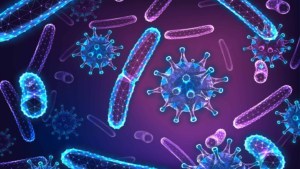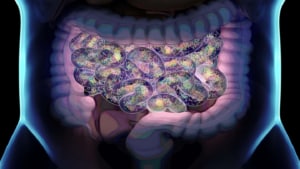At the Institute for the Advancement of Food and Nutrition Sciences research serves as the foundation for our actions. See our current grant opportunities below.
Current Opportunities:

Scientific integrity is a core value of IAFNS. Learn how we embed scientific integrity into every step of our research process.
Projects Funded by IAFNS:
IAFNS's mission is to advance food safety and nutrition science for the benefit of public health. View projects funded by IAFNS below, and learn how we embed scientific integrity into every step of our research process.
Simulating Powdered Product Sampling to Improve Food Safety Sampling Plans
Drawing accurate conclusions about whether an ingredient or finished product is safe based on the results of a test is important to the evaluation and management of food safety risk. With the expected prevalence of contamination in today’s food system at less than 1%, extremely large samples sizes are required to reliably detect contamination, and […]
Assess Macronutrient Intakes and Diet Quality for Contemporary Consumer Diets
A wide range of self-selected contemporary diets restrict or eliminate specific foods or food groups (e.g., gluten free). Health professionals advising consumers may be unaware of the relationship between specific diets and nutrient insufficiency as well as low diet quality overall. Restriction diets may be inadvertently putting consumers at risk for low quality diets […]
Assessing the Relationship between Low-Calorie Sweetener Use and Quality of Life Measures in Adults with Type 1 Diabetes
Low- and No- calorie sweeteners (LNCSs) have been acknowledged as a tool for reducing the intake of total carbohydrates and particularly added sugars in the nutritional management of diabetes. LNCSs may also help to improve Quality of Life (QoL). QoL is an important aspect in management of diabetes as reduced QoL can negatively affect diabetes-related […]
Broader Dietary Value of Food Category Contributors to Sodium Intake
As noted in the 2020 Dietary Guidelines Advisory Committee report, there is significant overlap between food categories that contribute to sodium intake and to vegetable intake. To ensure appropriate and effective messaging, dietary guidance, and food development or modification, it is important to understand the totality of nutrients and food groups provided by commonly consumed […]
Impact of Ingested Live Microbes on Health: An evidence Map
Human gut microbiome research has linked imbalances in the gut microbiota with several suboptimal health conditions. Consequently, the application of dietary interventions including foods (i.e., fermented foods [FFs]) and food supplements (i.e., probiotics) that contain live microorganisms to positively impact the gut microbiota and, in turn, health, has been the subject of much attention. […]
Specific Essential Amino Acid Intakes and Health Benefits Among Older Adults
Protein and specific amino acid intakes are among the lifestyle factors that can mitigate muscle loss among older adults. Lean mass is associated with metabolic and functional health in older age. Clear linkages between specific amino acids and health outcomes will inform future recommended intakes. Furthermore, comparing the composition of essential amino acids in differing […]
The Identification of Microbially-Derived Metabolites as Biomarkers: What Changes of Which Metabolites Matter for Health?
Identifying microbially‐derived metabolites that may serve as biomarkers for health, or metabotyping, is a necessary step to understanding the role of the microbiome in human health. Ultimately, knowing what metabolites (including presence and quantity) matter for health can inform development of a nutritional strategy for health benefits and the prevention of adverse health outcomes such […]
Development of a Research Framework for Evidence-Based Assessment of Potential Carcinogens in Human Diets
Risk assessment of chemicals that are potentially carcinogenic in humans often relies on extrapolation from carcinogenicity bioassays. There is a growing belief in the scientific community that evidence-based risk assessment can replace historical, over-protective guidance-based approaches. However, there is no consensus within the scientific community on an approach or framework for the application of an […]
Guiding Principles for Sodium Reduction Strategies in Food: A Compendium
Significant knowledge exists about sodium reduction in foods, some of which is captured in Food & Drug Administration guidance documents. But progress made to date has not been captured in a publicly accessible format, and where it is available, it is not in a domain typically accessed by the public health community. Developing a compendium […]
Impact of Dietary Sweetness Exposure on Future Dietary Intake: Reanalysis of Existing Intervention Trial Data
Several global health authorities recommend avoidance of sweetness in the diet from both sugar and low-calorie or non-nutritive sweeteners, due to concerns that intake of sweet taste drives a preference for more sweetness, with ultimate negative consequences for energy intake and weight. However, the scientific data available to understand the role of sweetness in the […]
Effect of Low-Calorie Sweetener Intake on Glycemic Response
Globally, dietary guidance recommends reducing added and total sugars in the diet to reduce caloric intake and chronic disease. Low-calorie sweeteners (LCS) present an option for reducing calories while providing sweetness in the diet, but questions remain regarding the effects of LCS on health, including its effects on glycemic response and diabetes. This project will […]
Standardizing Method and Development of Normal Values to Measure Human Small Intestinal and Colonic Permeability
Maintaining-or restoring to normal-gut barrier function is not currently recognized as a physiologic benefit of fiber consumption, in part due to lack of agreement by experts in the field on how to define and measure normal gut barrier function in human nutrition research. An IAFNS sponsored expert panel published an article in 2019 summarizing the […]












